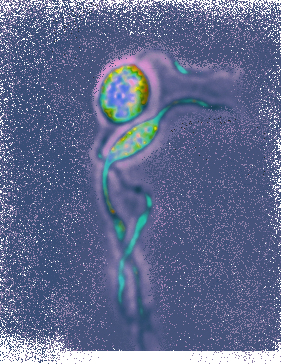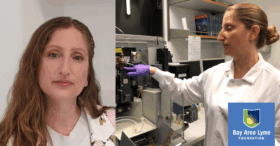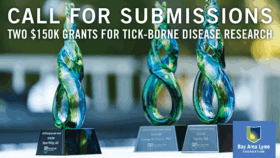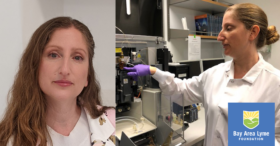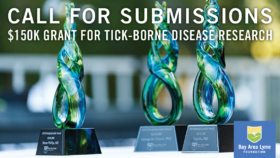By Bay Area Lyme Foundation FOR IMMEDIATE RELEASE
Bay Area Lyme Foundation Opens Applications for 2026 Emerging Leader Awards and Research Grants
Annual program to fund two $150,000 grants to revolutionize diagnosis and treatment of tick-borne diseases, including new award focused on co-infections
PORTOLA VALLEY, Calif., October 22, 2025 – Bay Area Lyme Foundation, a leading sponsor of Lyme disease research in the US, today announced its call for applicants from academia and the private sector for the 2026 Emerging Leader Awards (ELA). These annual awards recognize innovative researchers advancing novel approaches in tick-borne disease diagnostics and treatments, while embodying the future of research leadership in this critical field.
In 2026, Bay Area Lyme Foundation will award two $150,000 ELA grants:
- Lyme Disease Award will support creative approaches to advancing diagnostics and/or therapeutics for Lyme disease, continuing the legacy started more than a decade ago.
- Tick-borne Pathogen Award is a new grant to support research on non-Borrelia tick-borne pathogens/infections occurring in the US, with preference for bacterial and parasitic pathogens. Projects may address co-infections in combination with Borrelia burgdorferi or as stand-alone investigations. Viral infections (e.g., Powassan virus, Heartland virus) are excluded from this category.
Applications are due by February 15, 2026, at 11:59pm PT. Eligible applicants include academic and private-sector researchers at the post-doctoral through associate professor level (or equivalent in industry), including those new to Lyme and tick-borne disease research. All applicants are encouraged to request samples from the Lyme Disease Biobank.
Applicants must demonstrate scientific leadership, a strong supporting rationale, and the ability to generate proof of concept within 12–24 months. While diagnostic and therapeutic approaches are of particular interest, all areas of research relevant to patients will be considered. Submissions require a research proposal and at least one supporting letter from a supervisor or Principal Investigator.
The full criteria and application can be found here. Awardees will be announced at LymeAid in May 2026.
